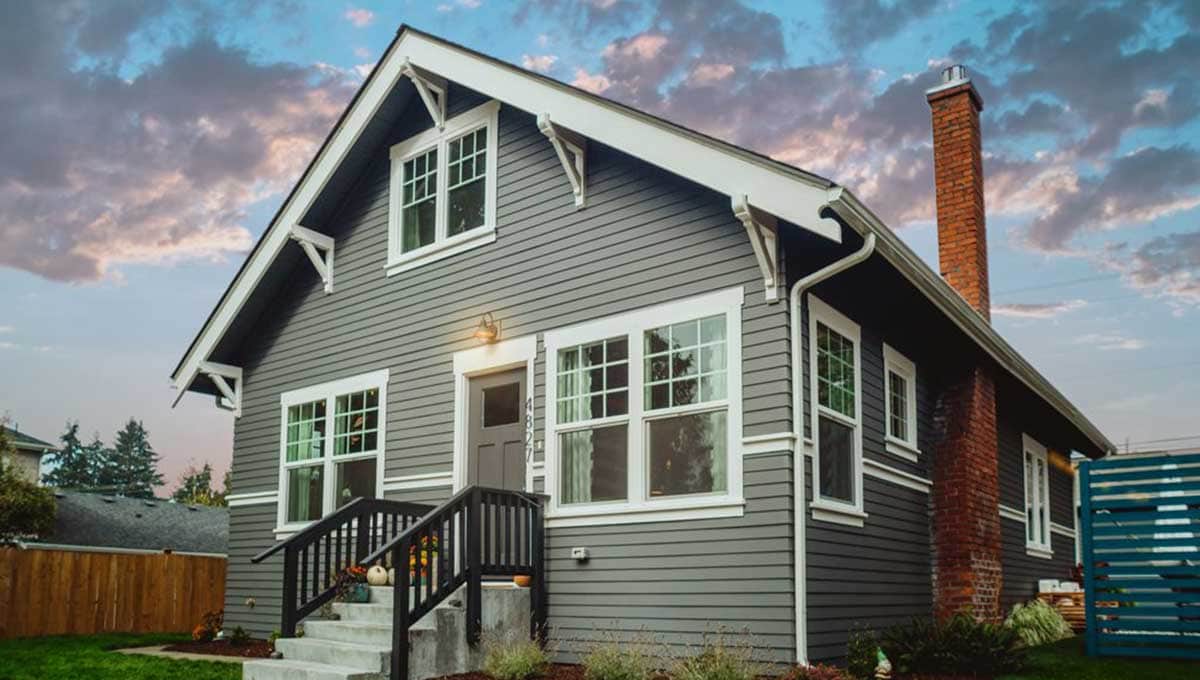In the past, John Locke's ideal of "life, liberty, and property" meant that everyone should have the right to own the land that they're on. However, in contemporary life, that just isn't true. Canadians are happy to rent their land and make other sorts of things their property.
But in this world where ownership is so ephemeral, it's extremely important for renters and landlords to know their rights. Landlord rights and tenant rights are hard to wrap your mind around if you're not a professional lawyer. Thankfully, there are options for you.
This article will walk you through all you need to know about landlord responsibilities, tenant responsibilities, and in the Insurdinary style, give you a crash course on the subject of Canadian renters and landlords' rights.
Where to Rent in Canada
Just like owning, however, it's extremely important to know where to rent. If you don't rent in the right spot, you might find yourself miserable. You won't be stuck with a whole house like you would if you bought, but you will be caught in a lease.
The many provinces of Canada provide a variety of exciting cities to live in and offer many unique rental opportunities. We're going to walk you through every Canadian province, and let you know the advantages — rent-wise — of living there.
Alberta
Alberta is a stunning province and one of the most famous in Canada, with a fifteen-dollar minimum wage, a high salary rate, and several wonderful cities such as St Albert, Calgary, and Canmore.
Rents in Alberta are known to be reasonable — not too high or low. A one-bedroom apartment will cost around $1,000 dollars a month, and studios are less. A two-bedroom costs around $1,200 dollars.
We recommend you grab a buddy or significant other to live with you in a one, or two-bedroom in Alberta. You'll have yourself a nice apartment (with perhaps even your own room) and definitely make enough to live a little as well.
Saskatchewan
If you're looking for a place to live with lower taxes, look no further than Saskatchewan. It's a gorgeous prairie province boasting thousands of lakes, rivers and breathtaking landscapes. Canada has notoriously high taxes — but not this province!
There's a lot of history in Saskatchewan and many indigenous groups who live there.
Housing is known to be on the reasonable-to-lower side. One bedroom usually finds itself available for just under $1,000 dollars, with studios going low as $600 dollars a month. If you're looking to go it alone, consider moving to Saskatchewan.
Manitoba
Manitoba is known worldwide for its low cost of living. It's also one of Canada's strongest and most stable economies. Everything is affordable, from tuition costs to car insurance to utilities to rent. You'll be spending under $1,000 dollars for a standard one-bedroom; combine that with the low cost of other utilities, and you have yourself a great deal.
Manitoba is also known for being culturally diverse, so if you're someone moving from the USA or other parts of the world, who's worried about a homogenous Canada, consider coming to Manitoba.
Quebec
If you ask a foreigner to name a province in Canada, they're probably going to say Quebec. They might not know, however, that Quebec considers its official language French, and that there are many cultural differences between Quebec and the rest of Canada.
People have compared Quebec to Texas or New York in the states; places with such insular communities that they're—in essence—their own country.
Rent in Quebec is considered low and is competitive to Saskatchewan. Looking for a more in depth look into the cities in Quebec? We have a great piece on that.
Nova Scotia
Nova Scotia is right by the ocean — the Atlantic, so you're going to get some great scenery moving there. Canada is known for the beauty of its scenery, and scenery can improve your well-being. If you're looking to boost your inner happiness, this is a good option.
Nova Scotia used to be on the chapter side, but now one would have to consider it reasonable... or even a bit pricey. One-bedroom units regularly go for $1,200 dollars, and two bedrooms climb close to $1,500 dollars. We're tempted to say you could move there with a friend or two, but taxes are known to be high, and amenities are expensive.
However, Halifax is a wonderful, populous, vibrant city — and the people are known as very friendly as well. You get what you pay for, and in Nova Scotia, you pay for some of the best quality of life.
New Brunswick
Brunswick is also known for friendly people, but unlike Nova Scotia, it's cheap. In fact, it's the cheapest place to live in Canada. To put this into perspective, a two-bedroom apartment goes for around $1,000 dollars a month!
There are some great cities and wonderful bits of nature. However, it's a bit tough to find work in New Brunswick, and many of the people who live there speak French. However, if you don't mind a bit of a cultural shock, and work remotely, you can easily head over to New Brunswick and live alone.
Prince Edward Island
Prince Edward Island is another affordable province to live in with a low employment rate. Rental fees are competitive with Manitoba, and the scenery and culture are known as beautiful.
Prince Edward Island is in fact, an island — and a small one at that. If you want to become familiar with a whole province and learn just what it has to offer, look no further than Prince Edward Island.
Newfoundland and Labrador
Newfoundland and Labrador are on the lower side of the rental spectrum, with competitive prices to Prince Edward Island. It's scenic, varied, and cultured. You'll find fjords, national parks, historical sites, forests, and many other wonderful natural landmarks.
If you're looking to settle down, you'll also enjoy the fact that there's an extremely low crime rate in Newfoundland.
Yukon Territories
Yukon is one of the smallest Canadian territories. It's surrounded by a ton of nature, but there are city possibilities.
If you're looking to settle down, you should know that they have a great education system. The people are friendly, and there's also an extremely low crime rate in the Yukon, which only helps how great of a place to settle down it is.
However, the Yukon is known to be expensive compared to other territories in Canada. Make sure you know the financial investment you're making before you move to this great province.
Ontario
Ontario is one of the most popular places to live in Canada — another one of the provinces foreigners would list when asked to name a place in Canada. Ontario is the host of Toronto, the most populous city in Canada, and a place you should certainly consider when moving to the great white north.
The high population means there's a lot of money to make and many great job opportunities. Toronto has a fantastic music scene as well, that a lot of famous musicians come out of. You might just catch the next big thing before they're huge.
If you're moving in from out of the country, Toronto is a great place for you, because it's filled with many expatriates. However, the living expenses are notoriously high. A one-bedroom can cost up to 1,500 dollars a month, so you're going to want to move with some friends if you're heading here
British Columbia
However, the dominance of Ontario population-wise shouldn't overshadow British Columbia. Vancouver is also an extremely popular city and a Canadian cultural hub.
A huge advantage of British Columbia is the climate — it's considered a lot more manageable than other parts of Canada.
However, the cost of living is very high, however, You could pay as much as 2,000 dollars a month for a one-bedroom in Vancouver. Even if you go with something a bit cheaper, things don't look too great rent-wise.
How Much Renters Insurance Do I Need?
If you find yourself with a tricky landlord that you just don't trust, you might want to grab rental insurance. You might want to get it in any circumstance; landlords can be tricky, and it can be hard to tell whether to not you should trust them.
If your landlord does happen to screw you over, there's often nothing you can do. This is why renters insurance is important, to make sure you have legal recourse. More to that, should there be a fire, flood or other event deemed not your fault, your belongings are insured. Our article on the subject will fill you in with all you need to know about renters insurance.
Make sure you understand the difference between what you have to do as a tenant, and what your landlord's responsibilities are. Otherwise, you might bet trying to get them in trouble for something you should be doing yourself.
What Are My Responsibilities as a Tenant?
You also want to make sure you fulfill your responsibilities as a tenant to make sure you don't get in trouble. Read your individual contact so you can tell what your specific rental requires. You should also be aware of typical responsibilities, like staying away from using your apartment for illegal activities, not being obtrusive to other tenants, confine messes to your own apartment, and fix any damage you cause.
Check out our article on reasons why tenant rental insurance is a must. The article walks you through a guide on what is and isn't considered landlord harassment. You do deserve to speak your mind to your landlord, but you should learn how much is going too far.
What Are the Rights of the Landlord?
While the landlords hold the power in a landlord-tenant relationship, they still have certain rights. Often, landlords get a bad reputation. However, we understand that it's a business just like any other.
A landlord should know what their rights are just as much as a tenant should. They should know when a tenant is being abusive, and what they can do as recourse. Our landlord self-help guide provides some much-needed support and advice.
What Are the Responsibilities of the Landlord?
However, landlords do have a lot of responsibilities. You're not just running a business, you're dealing with people's living spaces here. You're going to have to work strange hours and deal with people in order to make your business shine.
If you're a tenant, you should know your landlord's responsibilities, to know if they're being negligent. If your landlord isn't fulfilling their responsibilities and refuses to deal with your complaints, you might have to get your landlord in trouble.
What Are Rent to Own Homes?
If you're looking for something a bit more permanent, but aren't quite ready to make a big commitment yet, consider rent-to-own housing. In a rent-to-own agreement, you pay rent for now on a property, which goes towards your potential purchase of the property.
It's a great option to try out your home before you move into it, and a good idea for people with bad credit histories. Continue reading about rent-to-own housing here.
Renters and Landlords Should Know Their Rights
In the contemporary world, renters and landlords need to know their rights. If you're a renter, you have to have a sense of the responsibility of the people who own the land that you're on. If you're a landlord, you have to know people's rights.
No matter what you're going for, however, it's important to figure out which province in Canada you want to live in and weigh their pros and cons.
For more information, reach out to our partners at APOLLO Insurance.



